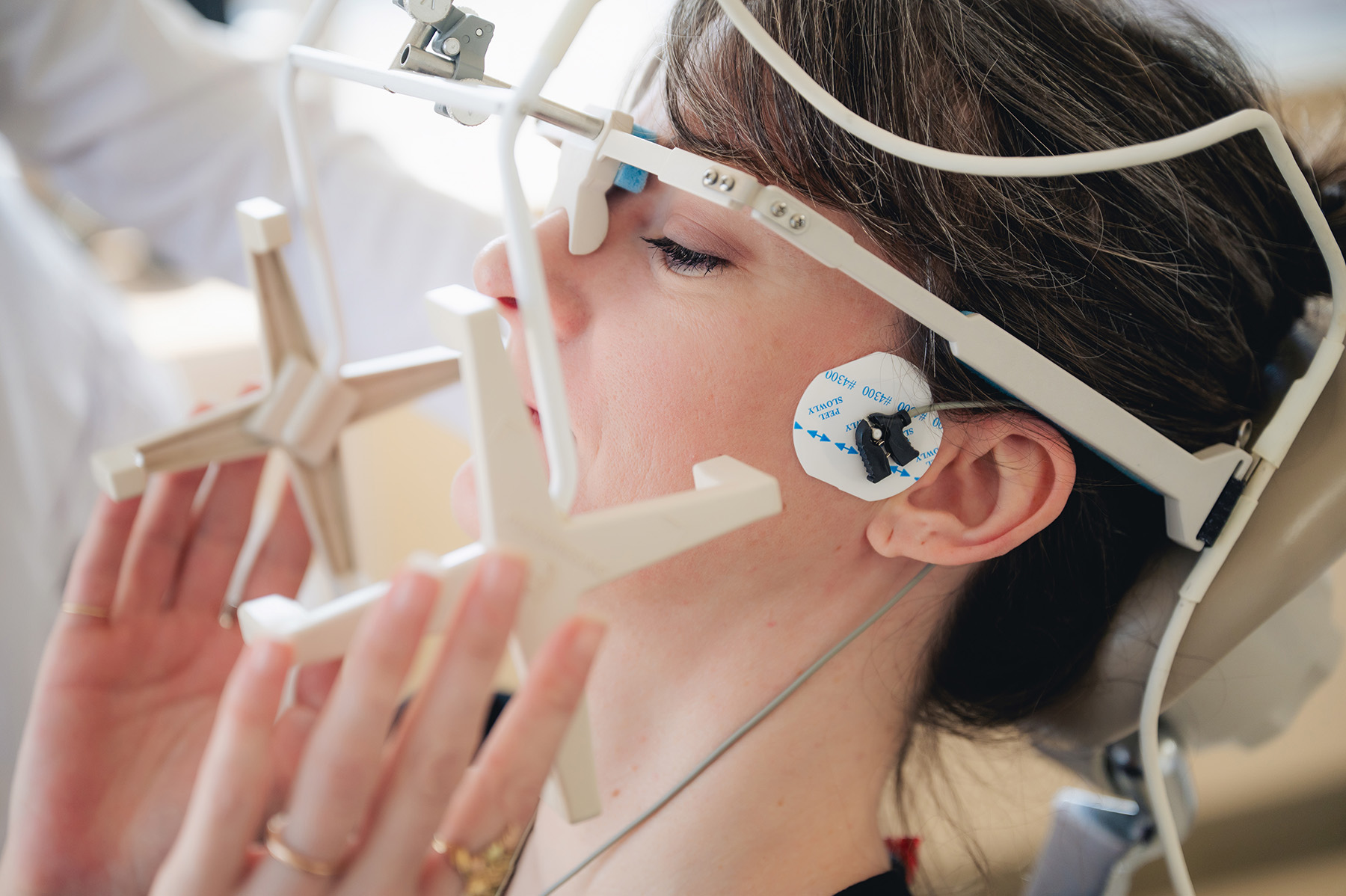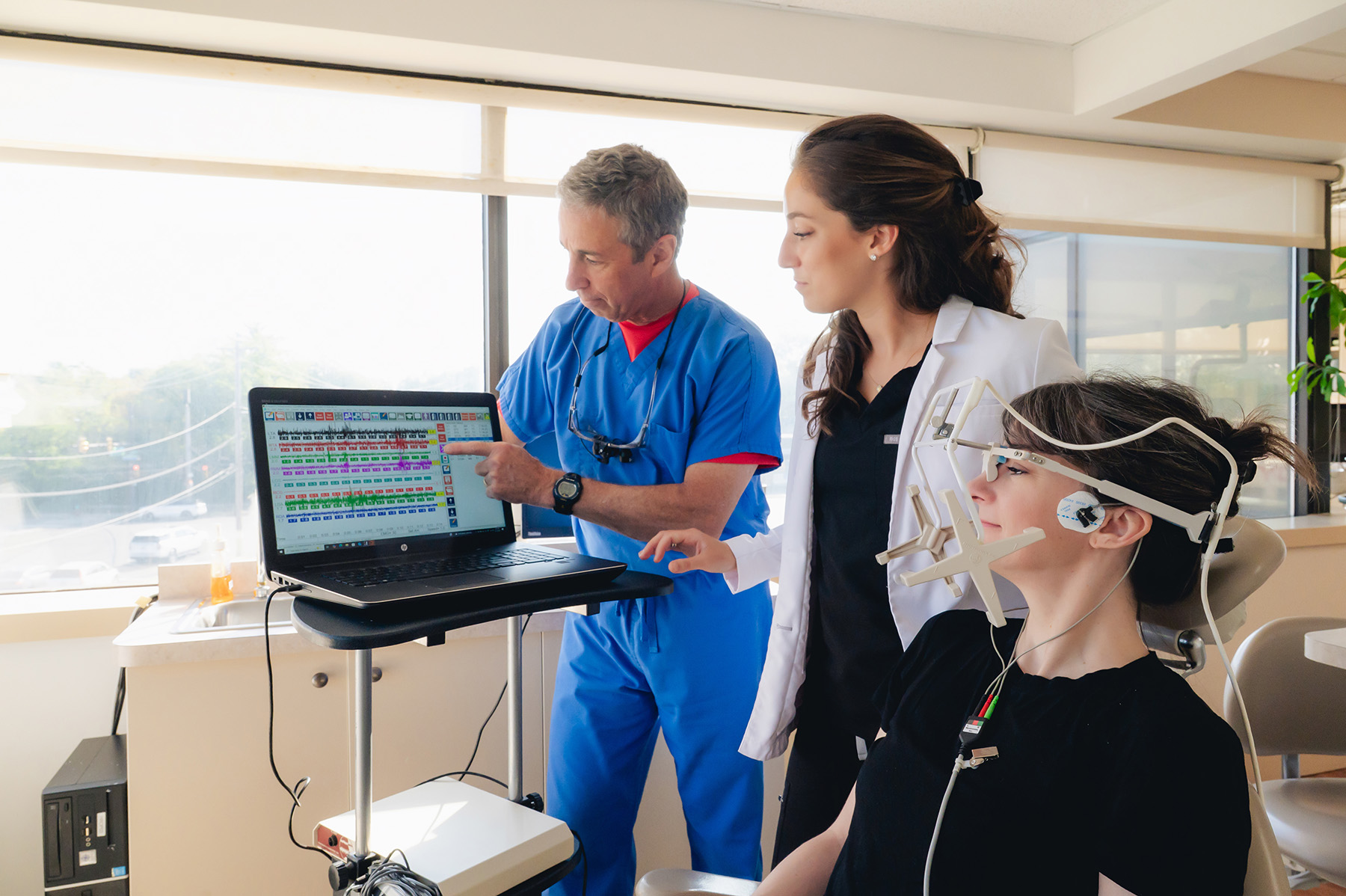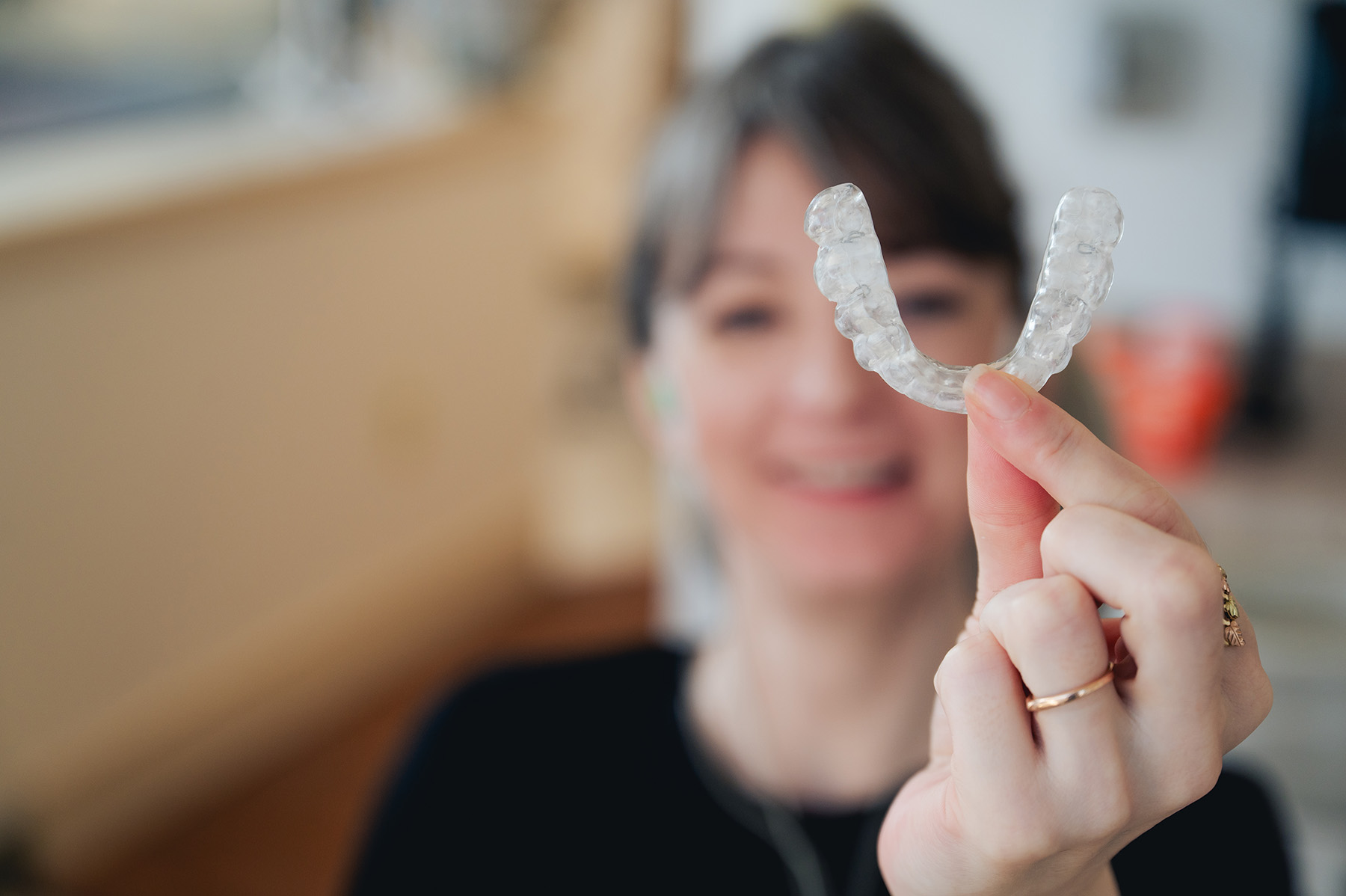If you’re suffering from headaches, jaw pain and stiffness, migraines, and other symptoms of TMJ/TMD, Dr. Molly Rosen is here to help. At our office, Dr. Rosen specializes in TMJ/TMD treatment in Philadelphia. Thanks to her specialized training with experts from the Las Vegas Institute, years of experience, and the advanced technology at our office, we provide best-in-class treatment for TMJ/TMD. Dr. Rosen can identify the root cause of your condition, provide relief from TMJ/TMD symptoms, and help you regain control of your life free from TMJ pain.
If you are interested in booking an appointment with Dr. Rosen, you can fill out this questionnaire to get started.

TMJ/TMD stands for “Temporomandibular Joint Disorder.” This is a condition that affects the “temporomandibular joints,” which are very small, delicate joints located just underneath both of your ears. These joints are responsible for connecting your jawbone to your skull.
When the temporomandibular joints become inflamed, damaged, or no longer function smoothly and properly, this condition is called “TMD.” TMJ/TMD can cause serious pain and discomfort, interfere with speaking and chewing, and cause other symptoms like headaches. Chronic TMD is also linked to mental health problems like anxiety and depression.
TMJ/TMD can often be difficult to treat because it can be caused by lots of different things. These can include stress, teeth clenching and grinding, jaw overuse (chewing lots of gum, for example), direct trauma from an impact to the joint, problems with your jaw and teeth alignment, sleep apnea, and more.
At our office, Dr. Molly Rosen is an expert in the treatment of TMJ/TMD. With her help, you can get to the bottom of your condition, understand what’s causing it, and take the proper steps to get relief from your pain, discomfort, and other symptoms.

Wondering if you have TMJ/TMD? Depending on its cause and severity, this condition can have a wide variety of signs and symptoms. Here are a few things that may indicate the presence of TMJ/TMD:
.jpg)
Every patient is different. The right treatment for your TMJ/TMD depends on its root cause, your oral health, and a variety of other factors. Not sure what to expect? Here are a few of the most common treatments for TMJ/TMD.
Once you’re “officially” diagnosed with Temporomandibular Joint Disorder (TMD/TMJ), treatment can begin as soon as you’re ready.
TENS: TENS units are small electrical devices that send an electrical impulse to the muscles that open and close your mouth. If your chronic TMJ occurs because you clench or grind your teeth (bruxism), this impulse can help your muscles relax. You can have TENS treatments right here in our office; many patients experience immediate relief after the first TENS session. TENS is affordable, easy, and can be done in a matter of minutes. For many people, this is the first step toward treatment.
Electromyography sensors: This TMJ technology involves sensors that tell our doctors whether your muscles are relaxed and your bite is properly aligned. The sensors can tell if your jaw movement is still impacted by misalignment and help our dentist craft a treatment plan tailored to you.
Orthotic devices: Once your jaw muscles are relaxed, Dr. Rosen will be able to tell if realigning your bite will help ease chronic jaw pain and other symptoms. If so, and this is often the case, she will recommend and design an oral appliance (an orthotic device) to move your jaw into its optimal position. Oral appliances for TMJ can be temporary and removable, or they can be permanent. Our dentists will discuss which oral appliance is best for you and will explain when it’s to be put in your mouth and for how long.
TMJ/TMD can be caused by an unhealthy bite and crooked teeth. If this is the case, orthodontic treatments like Invisalign can help restore your bite and correct the alignment of your smile. This may help reduce or even completely eliminate your TMJ/TMD symptoms. As an expert in Invisalign, Dr. Rosen can help you explore your orthodontic options for TMJ/TMD treatment.

Making lifestyle changes can help reduce symptoms and allow your jaw to heal. For example, eating a diet of mostly soft foods for a few weeks will reduce strain on the temporomandibular joint, which may allow it to heal. Other steps may include physical therapy, taking steps to de-stress, and avoiding the use of alcohol and tobacco, to name just a few.
Over-the-counter or prescription pain medication may be recommended in order to manage the pain and discomfort of TMJ/TMD. In some cases, muscle relaxants and even antidepressants may be recommended to help manage TMJ/TMD symptoms.
If you think you may need TMJ/TMD treatment in Philadelphia, Dr. Molly Rosen is ready to provide the expert care you need. She has extensive training in both TMJ/TMD oral appliances and Invisalign orthodontics and can help you explore your options for relief. Give us a call at (215) 402-6387 or book your first visit online, a no-commitment consultation at the office of Dr. Molly Rosen today.
Fill out this questionnaire before your first visit, so that Dr. Rosen can contact you prior to your appointment.